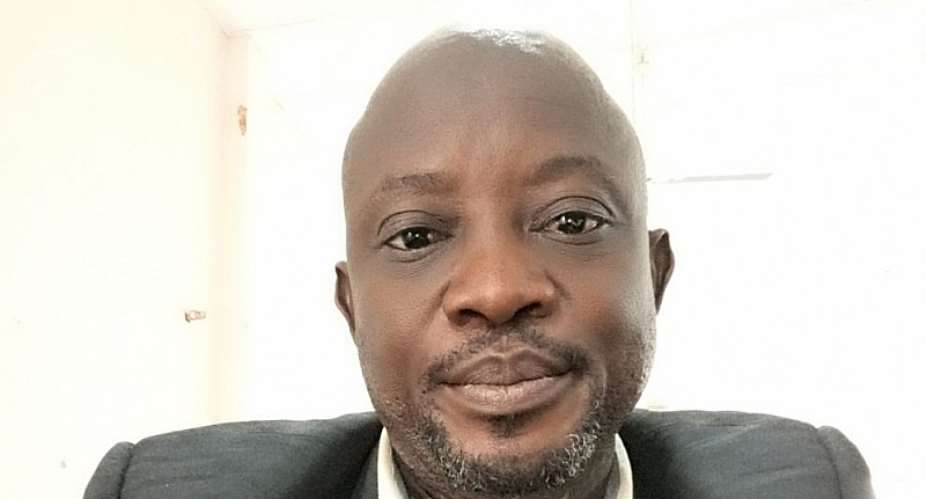Ghana, known for its vibrant culture and stable democracy, has faced recurring challenges stemming from political chicanery, insensitivity, corruption, unemployment, and greed. These interconnected issues not only undermine the fabric of governance but also sow the seeds of political unrest and insecurity, threatening the nation's hard-won stability.
Political chicanery, characterized by deceptive tactics and manipulative strategies, has long been a tool in the arsenal of some Ghanaian politicians. Instances of electoral fraud, vote buying, and manipulation of democratic processes erode trust in the government and disenfranchise citizens.
When the will of the people is subverted, dissent often brews, leading to protests and demonstrations as citizens seek to reclaim their democratic rights. Politicians have often taken the youth for granted. The only time they think about the youth is when they need votes and they will come up with packs of lies and money to deceive the people. They print cheap T-shirts and buy fuel for them to display on the roads while they sit in their big cars to campaign. Once they get what they want, it's a goodbye until the next four years as all the promises they make become nothing but mirage.
Moreover, political insensitivity exacerbates social divisions and alienates marginalized communities. Policies crafted without genuine consultation or consideration for the needs of all citizens can deepen socioeconomic inequalities and breed resentment. Whether it's the neglect of rural areas, the disregard for minority rights, or the failure to address pressing social issues, governmental insensitivity can fuel grievances that manifest in civil unrest and protests. Hence, the prevalent ritual killings, and armed robbery, among other social vices are the making of political insensitivity often displayed by our greedy politicians.
Corruption, a pervasive issue in many sectors of Ghanaian society, further corrodes public trust and undermines the rule of law. From embezzlement of public funds to bribery and kickbacks, corrupt practices enrich a selected few while impoverishing the masses. When citizens perceive their leaders as self-serving and corrupt, they may lose faith in the political system altogether, leading to heightened tensions and instability.
Unemployment, particularly among the youth demographic, is a pressing challenge that exacerbates social unrest and political instability. Ghana's youthful population represents a vast pool of untapped potential, yet many young people find themselves without viable employment opportunities. The frustration and disillusionment of unemployed youth can easily be manipulated by opportunistic politicians or extremist groups, leading to radicalization or involvement in criminal activities.
Greed, the insatiable desire for wealth and power, drives some politicians to prioritize personal gain over the welfare of the nation. Cronyism, nepotism, and favouritism in government appointments and resource allocation deepen social divisions and breed resentment. When political leaders are perceived as enriching themselves at the expense of the common good, public anger can boil over into protests, strikes, or even violent upheavals.
Addressing these interconnected issues requires a holistic approach that tackles the root causes of political malpractice. Strengthening democratic institutions, promoting transparency and accountability, and fostering inclusive governance are essential steps in restoring public trust and stability. Additionally, investing in education, skills training, and job creation initiatives can provide opportunities for Ghana's youth, mitigating the risk of social unrest.
Civil society organizations, the media, and ordinary citizens also have a crucial role to play in holding political leaders accountable and advocating for positive change. By demanding transparency, challenging corruption, and amplifying the voices of the marginalized, Ghanaians can collectively work towards a more just and equitable society. This must however be done devoid of tribal sentiment as is often the case in the pronouncements of many opinion leaders.
In conclusion, the nexus of political chicanery, insensitivity, corruption, unemployment, and greed poses a significant threat to Ghana's stability and prosperity. By addressing these issues head-on and fostering a culture of good governance and accountability, Ghana can chart a course towards a brighter and more secure future for all its citizens





 Voter registration: Two Togolese Nationals arrested in Buem for attempting to re...
Voter registration: Two Togolese Nationals arrested in Buem for attempting to re...
 DR Congo thwarts Kinshasa 'coup attempt': army
DR Congo thwarts Kinshasa 'coup attempt': army
 Media has made good progress in Ghana — Frema Opare
Media has made good progress in Ghana — Frema Opare
 E/R: We will demonstrate against our parliamentary candidate for disappearing af...
E/R: We will demonstrate against our parliamentary candidate for disappearing af...
 Kotokuom elders issue ultimatum to Kwaku Boah to stop defaming Atwima Agogohene ...
Kotokuom elders issue ultimatum to Kwaku Boah to stop defaming Atwima Agogohene ...
 W/R: Tragic premix explosion injures 16 in Ngyirasia
W/R: Tragic premix explosion injures 16 in Ngyirasia
 Election 2024: NDC pledges to scrap betting tax, targets 80% youth support
Election 2024: NDC pledges to scrap betting tax, targets 80% youth support
 Mahama was a one-term president because he was incompetent and brought untold ha...
Mahama was a one-term president because he was incompetent and brought untold ha...
 Blame IMF programme for Cedi's decline —Prof Bokpin
Blame IMF programme for Cedi's decline —Prof Bokpin
 Court denies Kasoa soldier killer bail
Court denies Kasoa soldier killer bail
